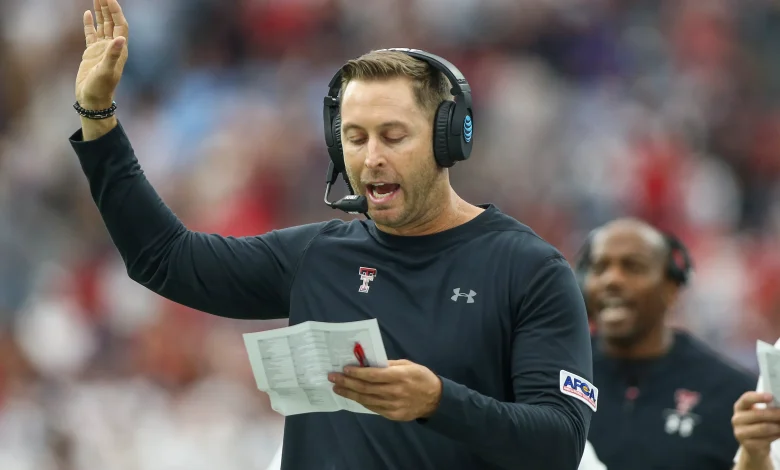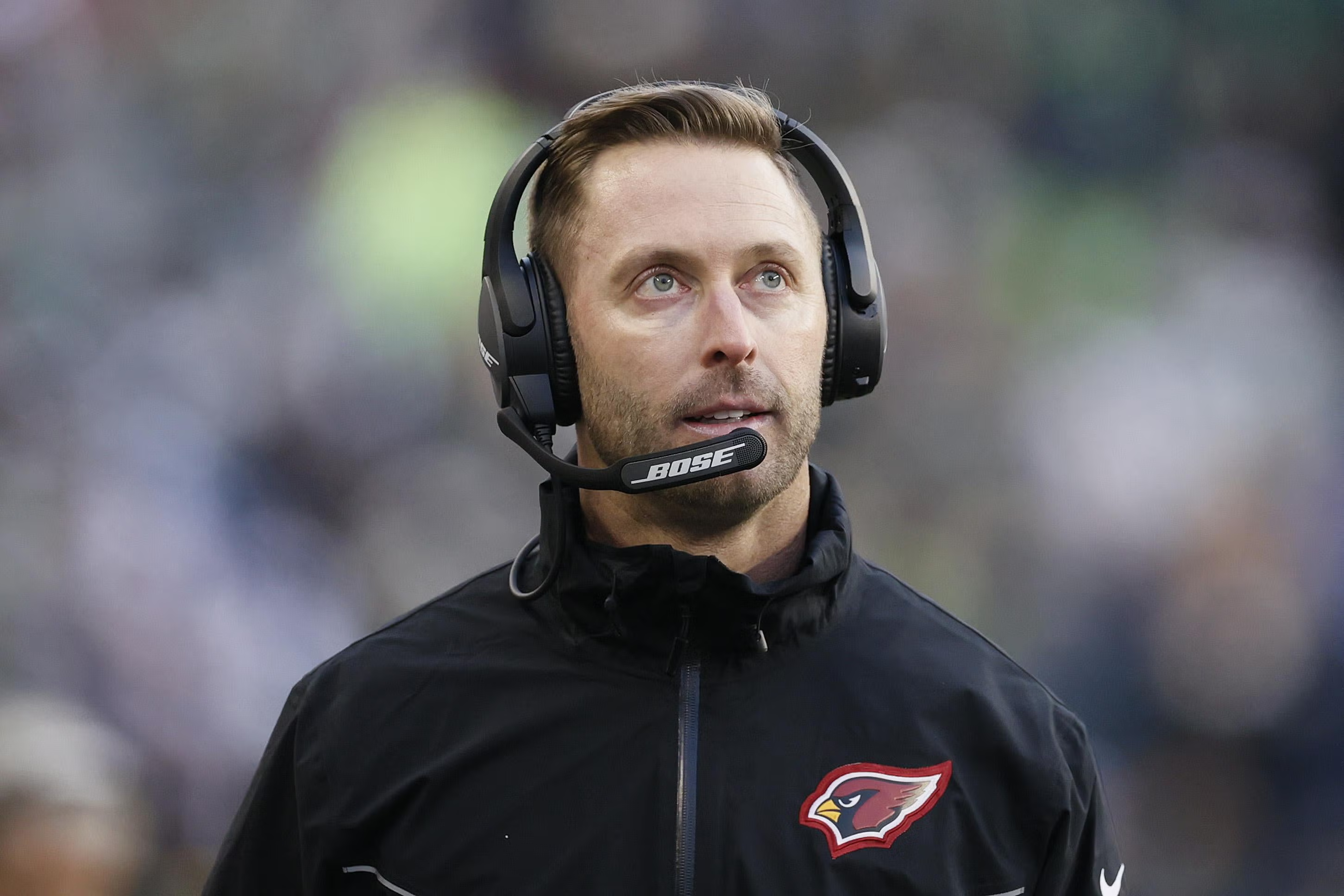The Evolution of Arizona Cardinals Head Coach’s Leadership Style

Introduction to the Arizona Cardinals Head Coach
Welcome to the gridiron where leadership styles are put to the test and strategies are crafted for victory. In the dynamic world of NFL coaching, the Arizona Cardinals Head Coach is pivotal in shaping team culture, player development, and, ultimately, on-field success. Let’s delve into the evolution of leadership styles within this esteemed position and explore how each coach has left a unique mark on the franchise. From tough love to modern techniques, join us on a journey through time as we uncover the transformative path of Arizona Cardinals head coaches.
Early Years: A Learning Curve for Leadership
In the early years of the Arizona Cardinals head coach, leadership was a journey of trial and error. Learning to navigate the complexities of managing a team, developing strategies, and building player morale was no easy task. It required adaptability, humility, and a willingness to grow.
Mistakes were made along the way, but each misstep served as a valuable lesson in leadership. Understanding how to motivate players while maintaining discipline was crucial. Establishing trust and respect within the team was essential for success on and off the field.
The challenges faced during these formative years shaped the coach’s approach to leadership moving forward. Each setback provided an opportunity for growth and self-improvement. Through perseverance and dedication, the foundation for future leadership styles was laid.
The Bruce Arians Era: From Tough Love to Team Unity
During the Bruce Arians era, the Arizona Cardinals experienced a shift in leadership style. Known for his tough love approach, Arians pushed players to their limits but also fostered a sense of unity within the team. His no-nonsense attitude demanded excellence while creating a culture of accountability and teamwork.
Under Arians’ guidance, the Cardinals flourished, reaching new heights of success on the field. Players respected his direct communication style and embraced the challenge of meeting his high expectations. The balance between discipline and camaraderie that Arians cultivated translated into wins and player development.
Arians’ emphasis on building strong relationships with his team members set him apart as a leader. He understood that trust and respect were essential components in fostering a winning mentality among players. Through his tenure, he proved that a blend of toughness and unity could drive teams towards greatness.
Steve Wilks: Implementing a New Vision and Culture
Steve Wilks took the helm as the Arizona Cardinals head coach with a clear mission in mind: to implement a new vision and culture within the team. His background in coaching defense brought a fresh perspective, emphasizing discipline and structure on and off the field.
Wilks aimed to foster accountability among players, instilling a sense of responsibility for their performance. He strived to create an environment where every individual understood their role in contributing to the team’s success.
Under his leadership, there was a noticeable shift towards building stronger relationships among players and coaches. Wilks encouraged open communication and teamwork, setting the foundation for collaboration and trust within the organization.
His focus on unity resonated with many players, who embraced his approach of valuing each person’s unique strengths while working towards common goals. Through his efforts, Wilks left an indelible mark on the team’s culture that would endure beyond his tenure as head coach.
Kliff Kingsbury: Embracing Modern Leadership Techniques
Kliff Kingsbury, the current head coach of the Arizona Cardinals, brings a fresh perspective to leadership in the NFL. Known for his innovative approach to coaching, Kingsbury has embraced modern leadership techniques that resonate with today’s players.
Gone are the days of strict authoritarian coaching styles; Kingsbury values open communication and collaboration within his team. He understands the importance of building strong relationships with his players both on and off the field.
With a background in offensive schemes and an eye for detail, Kingsbury leverages data analytics and technology to enhance player performance. His forward-thinking mentality has revolutionized how coaches approach game planning and strategy.
Kingsbury motivates his team to reach their full potential by fostering a culture of trust and empowerment. His ability to adapt to changing times demonstrates his commitment to continuous improvement as a leader in professional football.
Impact on Team Performance and Success
The Arizona Cardinals Head Coach plays a pivotal role in shaping the team’s performance and success on the field. Their leadership style sets the tone for how players approach their roles, work together, and strive for excellence.
A coach emphasizing teamwork, discipline, and accountability can motivate players to push themselves beyond their limits. The coach can inspire individuals to perform at their best when it matters most by instilling a winning mindset and fostering a culture of resilience.
When a head coach creates an environment where every player feels valued and supported, team morale soars, improving cohesion on game day. This unity can translate into better communication, strategic execution, and ultimately more wins for the Arizona Cardinals.
In essence, the impact of a head coach goes far beyond X’s and O’s; it influences player development, team dynamics, and overall performance levels. The right leadership approach can elevate a team from contenders to champions.
Personal Growth and Adaptability as a Leader
As the head coach of the Arizona Cardinals, personal growth and adaptability are crucial traits to navigate the ever-changing landscape of professional football. A leader’s ability to evolve with new challenges and trends can make all the difference in shaping a successful team dynamic.
Embracing feedback and learning from both victories and setbacks is essential for continuous improvement. Adapting leadership styles to suit different players’ personalities and needs fosters stronger bonds within the team. Flexibility in decision-making allows for quick adjustments during intense game situations.
Staying open-minded to innovative strategies and technologies keeps a coach ahead of the curve in a competitive league like the NFL. Cultivating emotional intelligence helps build trust and respect among players, creating a cohesive unit that works towards a common goal.
Maintaining composure under stress in such a high-pressure environment shows true leadership qualities. Prioritizing self-reflection and self-improvement sets an example for others to follow, fostering growth on both personal and team levels.

Lessons Learned from the Evolution of Leadership Style
As the Arizona Cardinals’ head coach leadership style evolved, valuable lessons emerged that can benefit leaders in any field. One key lesson learned is the importance of adaptability. Each coach brought their own approach and had to adjust based on team dynamics and player personalities.
Another takeaway is the significance of communication. Effective communication fosters trust, unity, and a shared vision among team members. The evolution also highlighted the need for continuous learning and growth as a leader.
Moreover, embracing change with an open mind was crucial for success. Adapting to new strategies, technologies, and trends kept the team competitive in a constantly evolving environment. The journey of Arizona Cardinals head coaches showcased how flexibility, communication, continuous improvement,and openness to change are essential components of effective leadership.
Conclusion
In the ever-evolving landscape of the NFL, Arizona Cardinals head coaches have each brought their unique leadership styles to the table. These leaders have impacted the team’s performance and success, from learning curves and tough love to implementing new visions and embracing modern techniques.
As we reflect on the evolution of Arizona Cardinals head coaches’ leadership styles, one thing remains clear – personal growth and adaptability are key traits for effective leadership. By continuously learning from past experiences, staying open to change, and evolving with the times, these coaches have shaped not only their teams but also themselves as leaders.
The lessons learned from this journey serve as valuable insights for aspiring leaders in any field: stay true to your vision while remaining flexible, embrace both traditional values and modern approaches, and prioritize team unity while holding individuals accountable.
Ultimately, it is not just about wins or losses on the field but about building a culture of excellence that transcends sports. The evolution of Arizona Cardinals’ head coach’s leadership style is a testament to the power of growth, resilience, and innovation in achieving greatness.




